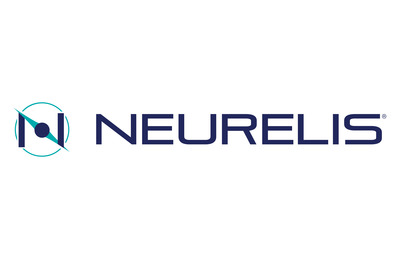Action required: Please refresh your browser
We have recently implemented some changes that require a hard refresh of your browser: Please hold down the CTRL-key and press the F5 key.
After a successful hard refresh, this message should not appear anymore.
More details about this topic are available here »
| NEURELIS ANNOUNCES TWO POSTER PRESENTATIONS AT THE 76TH ANNUAL MEETING OF THE AMERICAN ACADEMY OF NEUROLOGY | ||
| By: PR Newswire Association LLC. - 11 Apr 2024 | Back to overview list |
|
|
Findings include analysis of seizure cluster treatment patterns with use of VALTOCO® (diazepam nasal spray) CIV and characterization of a diazepam dosing regimen in an animal model SAN DIEGO, April 11, 2024 /PRNewswire/ -- Neurelis, Inc. will present a poster on VALTOCO® (diazepam nasal spray) for the treatment of episodes of frequent seizure activity (i.e., seizure clusters) in patients with epilepsy ages 6 to 65 years, describing the time to treatment across different subpopulations. A second presentation will provide insight into characterization of a repeat-dosing model for preclinical diazepam studies. These findings will be showcased through posters at the 76th Annual Meeting of the American Academy of Neurology (AAN) in Denver from April 13 to 18, offering both in-person attendance and live online participation in a hybrid format. "These studies represent our continued commitment to improving outcomes for patients with epilepsy," said Adrian L. Rabinowicz, M.D., Chief Medical Officer. "Our persistent research highlights the efficacy of VALTOCO, and we are delighted to disseminate these additional findings to patients, physicians, and healthcare organizations attending AAN, an event renowned for its rigorous standards." Details of the selected poster presentations are below and available online to review at American Academy of Neurology Annual Meeting:
Enrique Carrazana, M.D., Neurelis Senior Vice President, Strategic Initiatives commented, "Our findings underscore the critical necessity acknowledged within the epilepsy community: the pressing demand for safe, dependable, and easily accessible therapies to address the challenges of seizure clusters." VALTOCO, a nasal spray for acute treatment of episodes of frequent seizure activity in adult and pediatric patients 6 years of age and older, was approved by the U.S. Food and Drug Administration (FDA) on Jan. 10, 2020. About Neurelis Neurelis, Inc., is a neuroscience company focused on the development and commercialization of therapeutics for the treatment of epilepsy and neurologic disorders characterized by high unmet medical need. In 2020, the FDA approved Neurelis' VALTOCO® (diazepam nasal spray) as an acute treatment of intermittent, stereotypic episodes of frequent seizure activity (i.e., seizure clusters, acute repetitive seizures) that are distinct from an individual's usual seizure pattern in adult and pediatric patients 6 years of age and older. VALTOCO is a proprietary formulation of diazepam incorporating the science of INTRAVAIL®, a transmucosal absorption enhancement technology that enables the noninvasive delivery of a broad range of protein, peptide and small-molecule drugs. For more information on VALTOCO, please visit www.valtoco.com. For the latest scientific information on VALTOCO, please visit http://www.neurelismedicalaffairs.com/. Neurelis is also developing NRL-1004, an investigational, Phase 1 stage intranasal olanzapine for treatment of acute agitation episodes associated with schizophrenia and bipolar disorder. In addition, Neurelis is also developing NRL-1049 (previously known as BA-1049), an investigational, Phase 1 new chemical entity Rho kinase (ROCK) inhibitor, for the treatment of cerebral cavernous malformations (CCMS), a rare disorder of the central nervous system (CNS). For more information on Neurelis, please visit www.neurelis.com. Important Safety Information about VALTOCO: Indication VALTOCO® (diazepam nasal spray) is indicated for the acute treatment of intermittent, stereotypic episodes of frequent seizure activity (ie, seizure clusters, acute repetitive seizures) that are distinct from a patient's usual seizure pattern in patients with epilepsy 6 years of age and older. WARNING: RISKS FROM CONCOMITANT USE WITH OPIOIDS; ABUSE, MISUSE, AND ADDICTION; and DEPENDENCE AND WITHDRAWAL REACTIONS
Contraindications: VALTOCO is contraindicated in patients with:
Central Nervous System (CNS) Depression The potential for a synergistic CNS-depressant effect when VALTOCO is used with alcohol or other CNS depressants must be considered, and appropriate recommendations made to the patient and/or care partner. Suicidal Behavior and Ideation Glaucoma Neonatal Sedation and Withdrawal Syndrome Risk of Serious Adverse Reactions in Infants due to Benzyl Alcohol Preservative Adverse Reactions Diazepam, the active ingredient in VALTOCO, is a Schedule IV controlled substance. Please read full Prescribing Information, including Boxed Warning. Contacts: Neurelis: Media:
SOURCE Neurelis, Inc. 
|
||
|
||
 | Back to overview list | |




